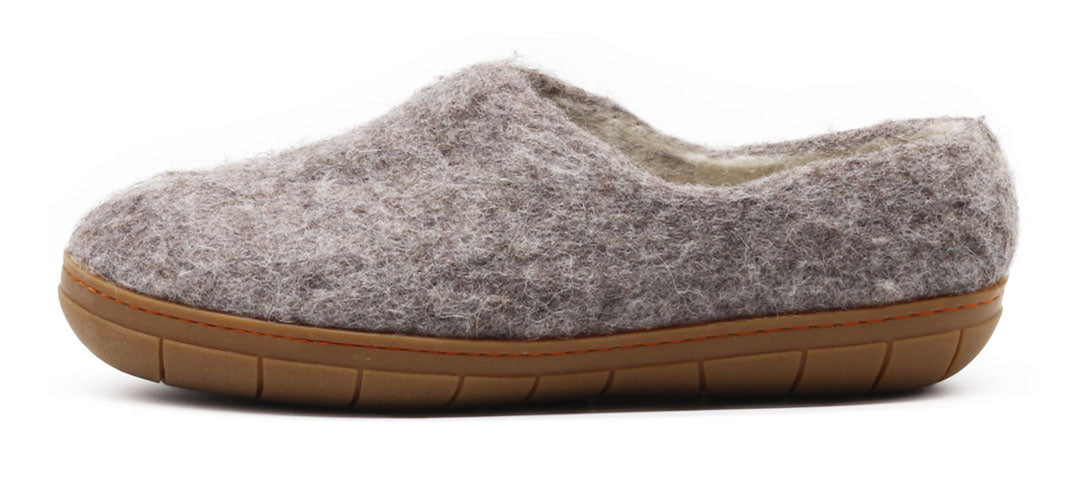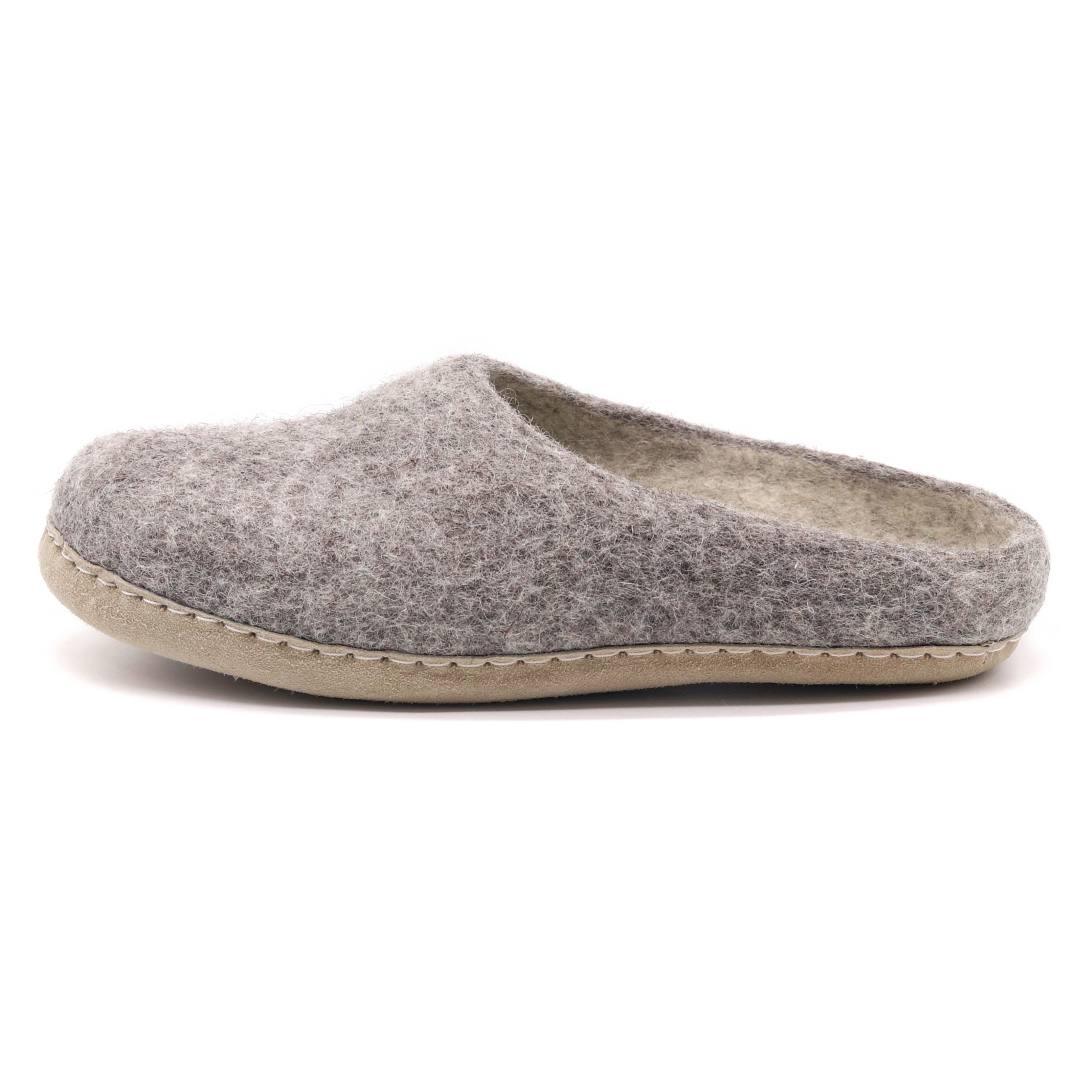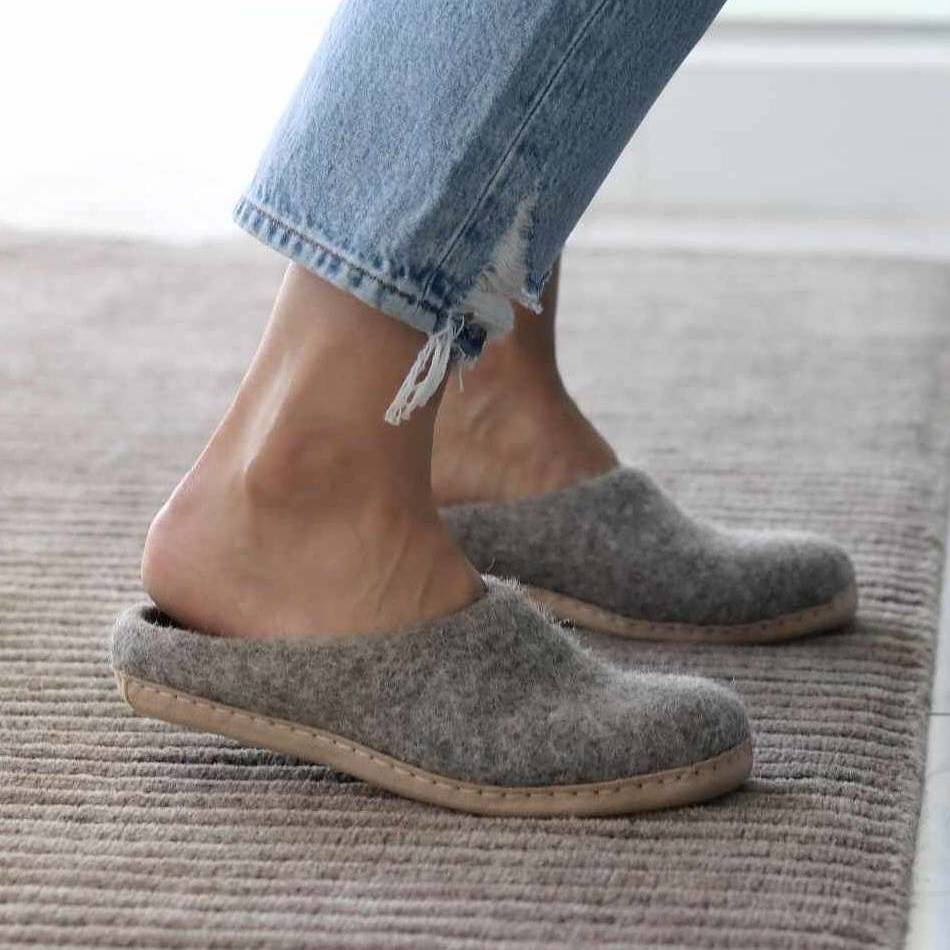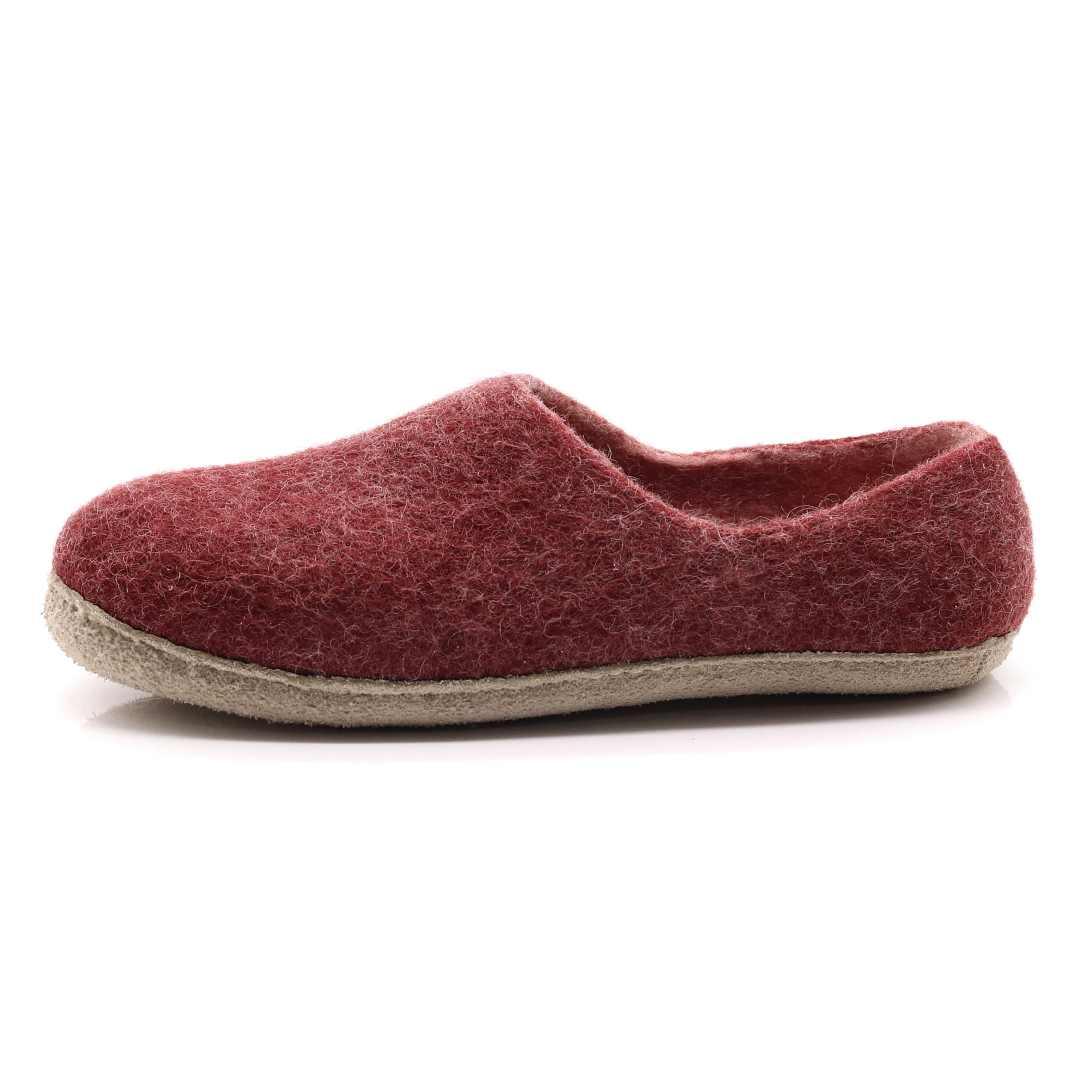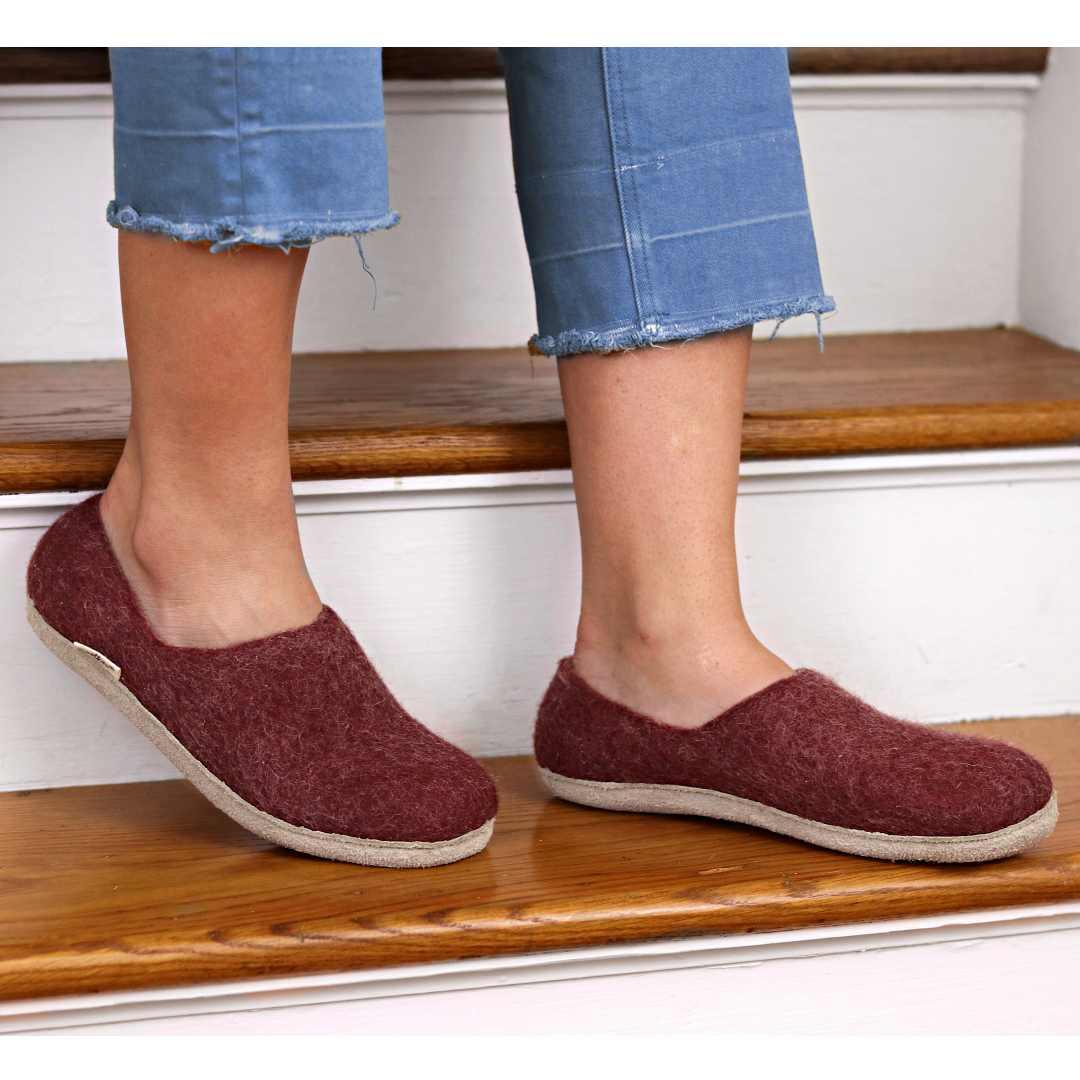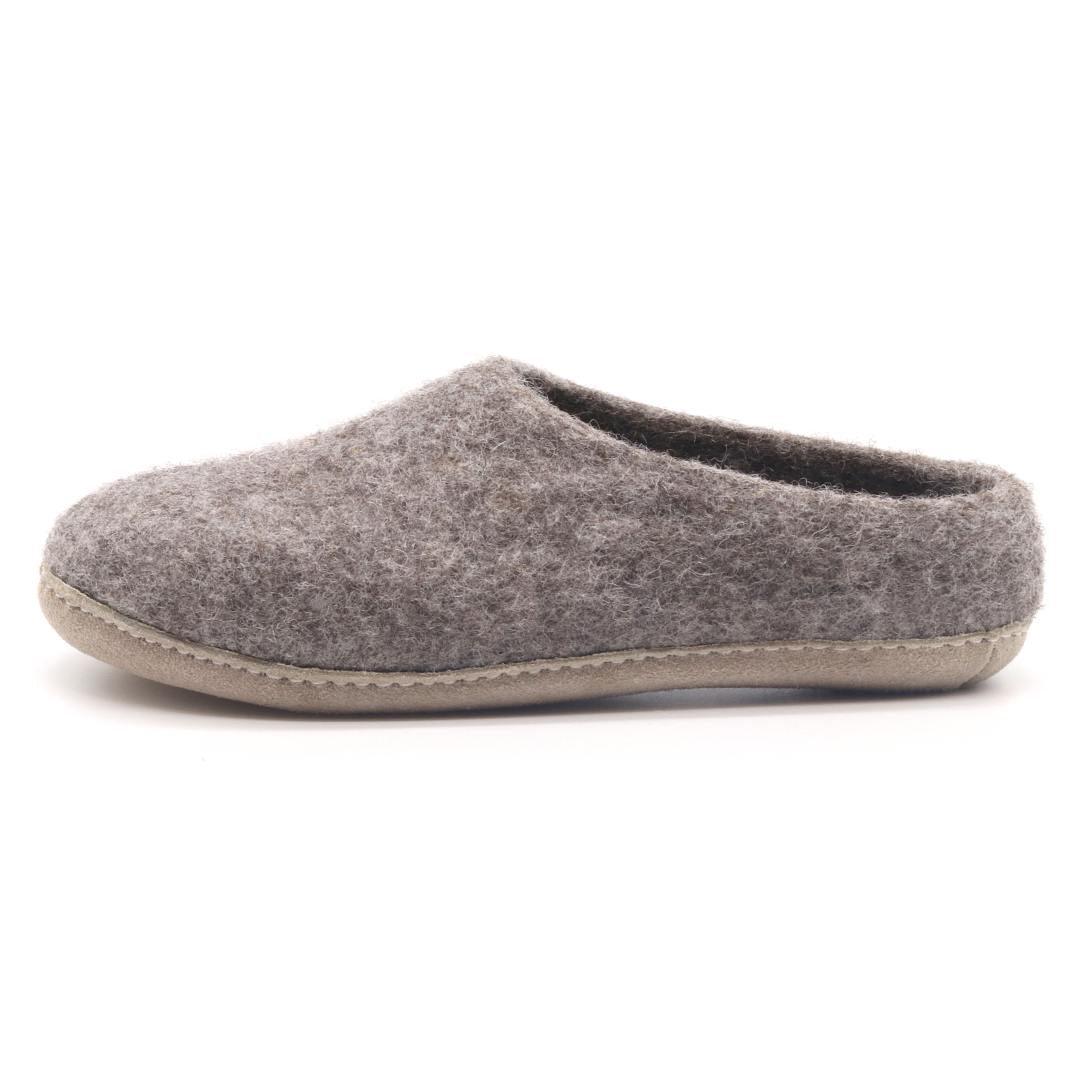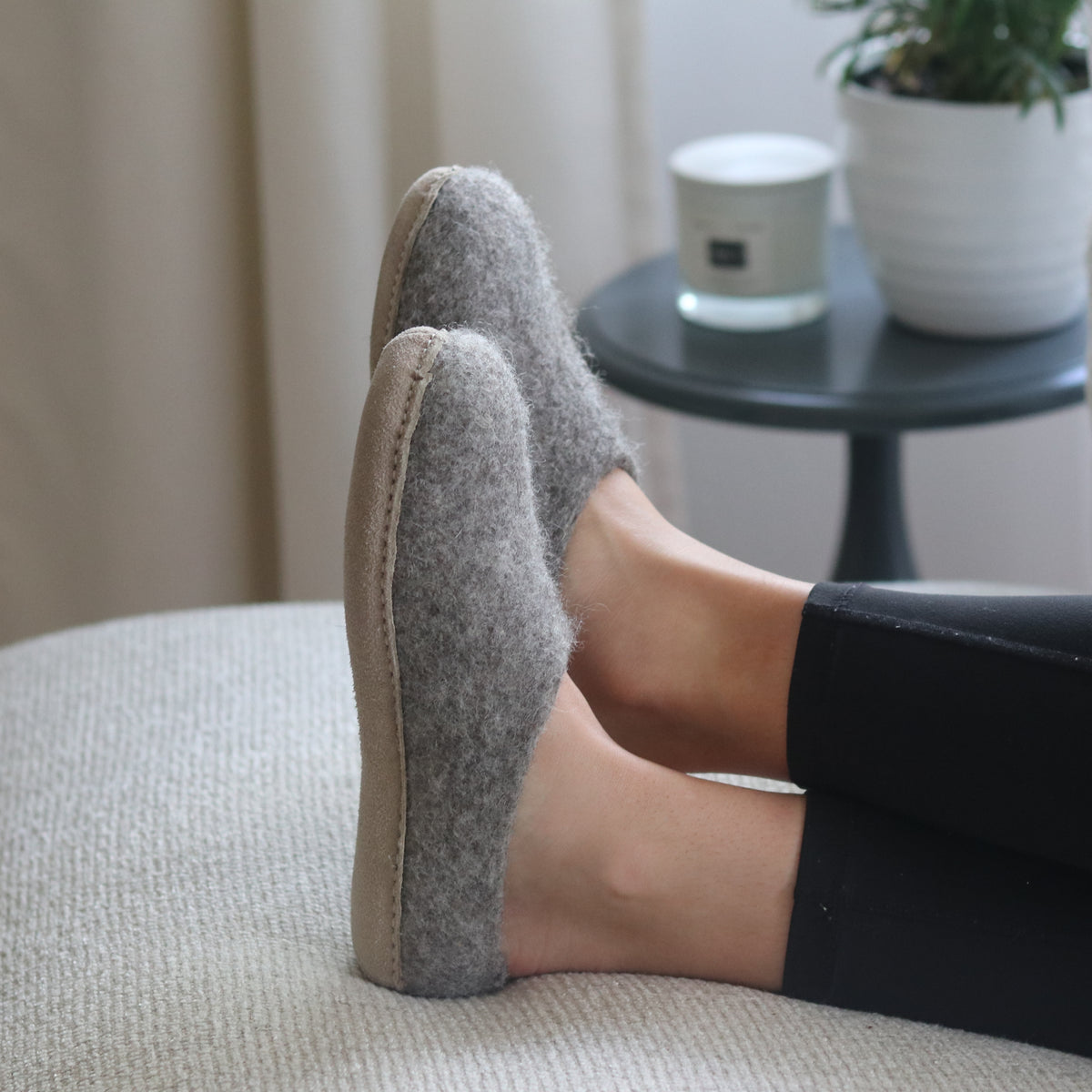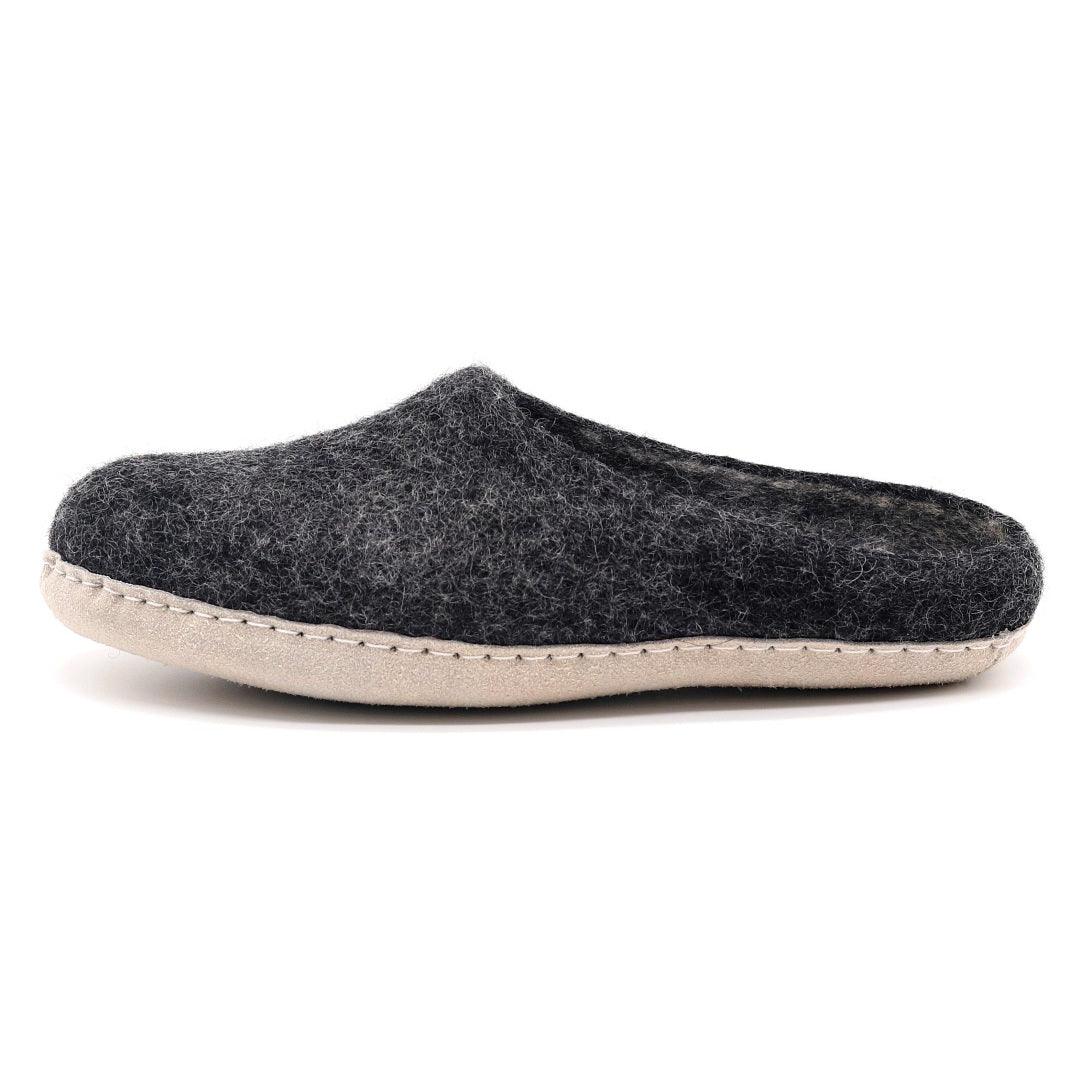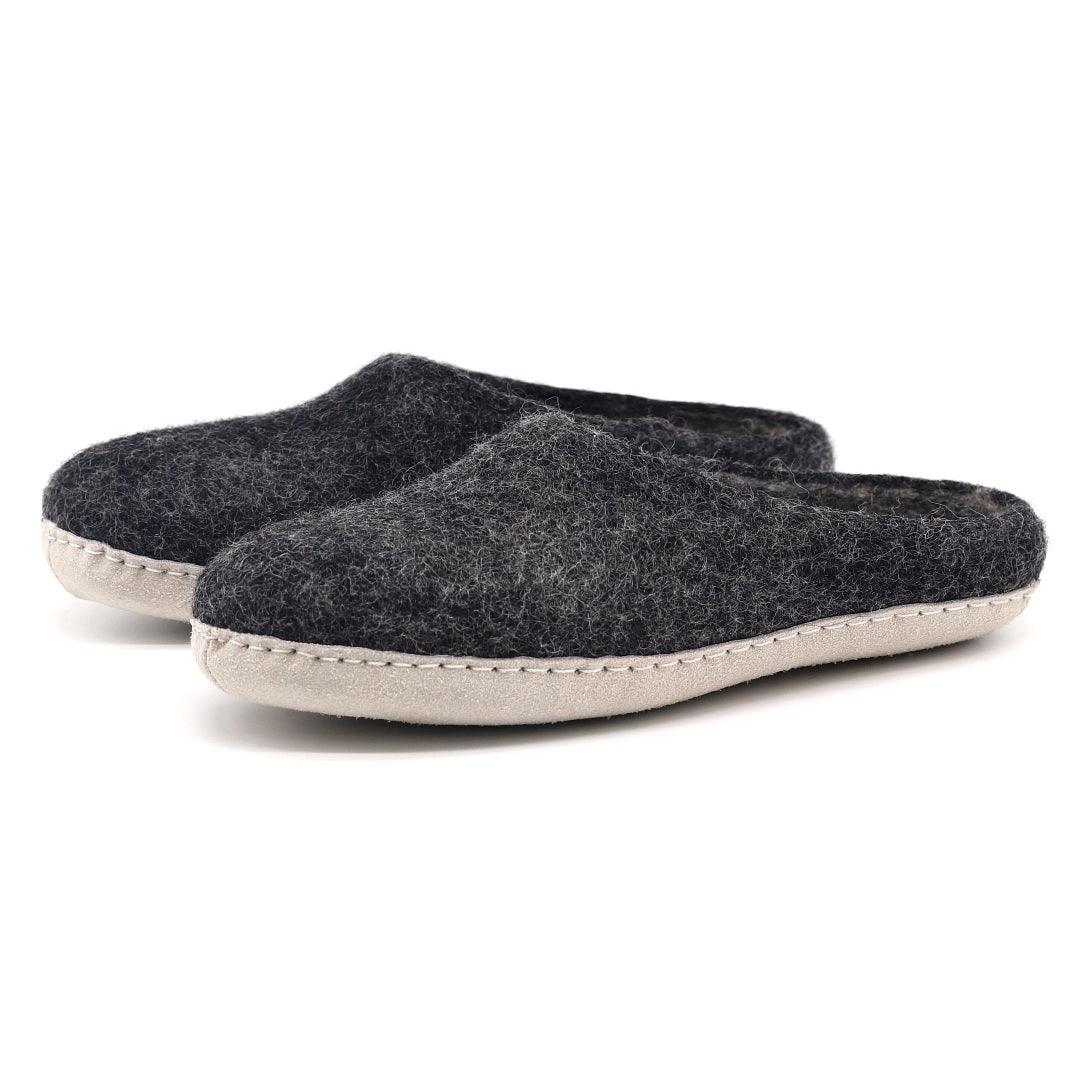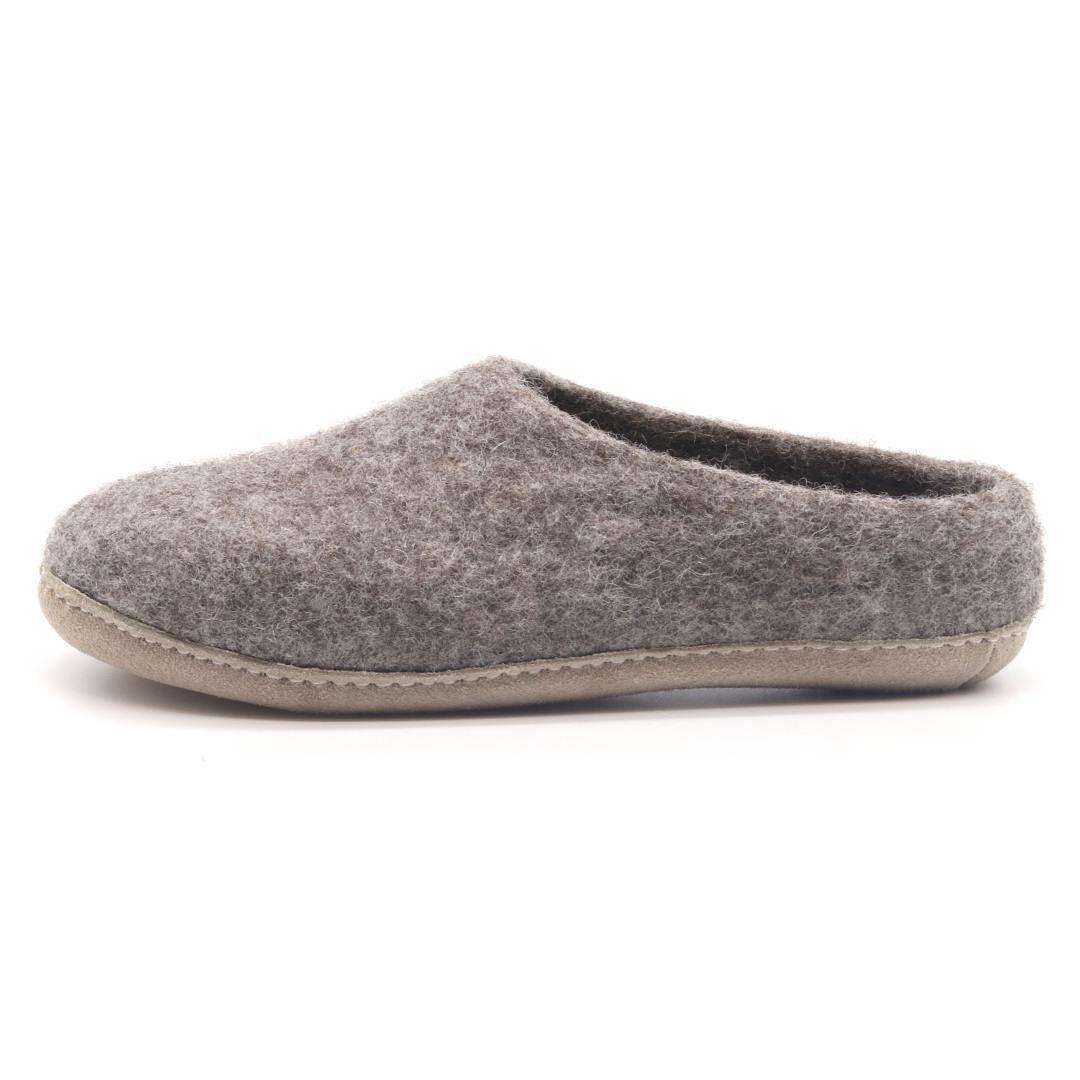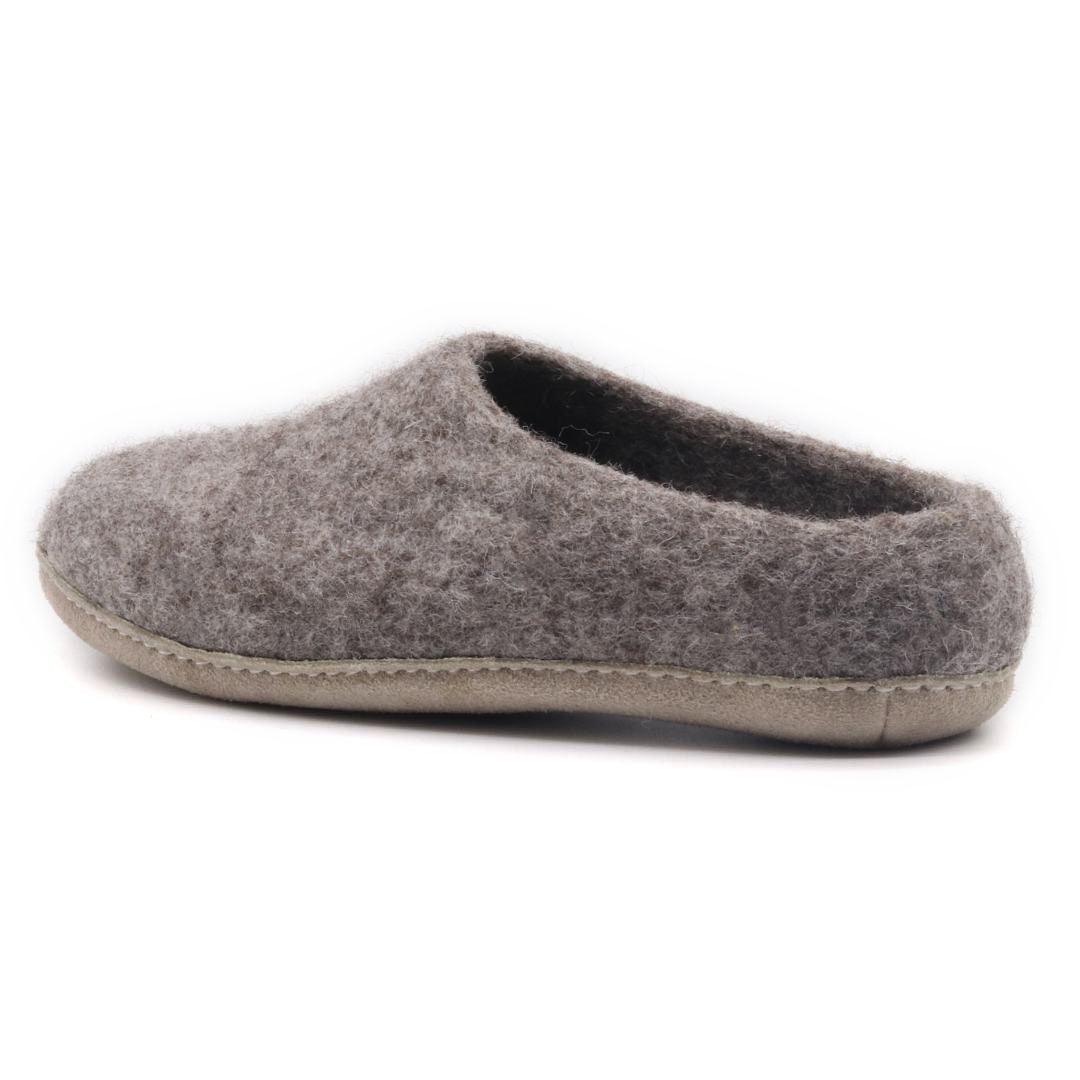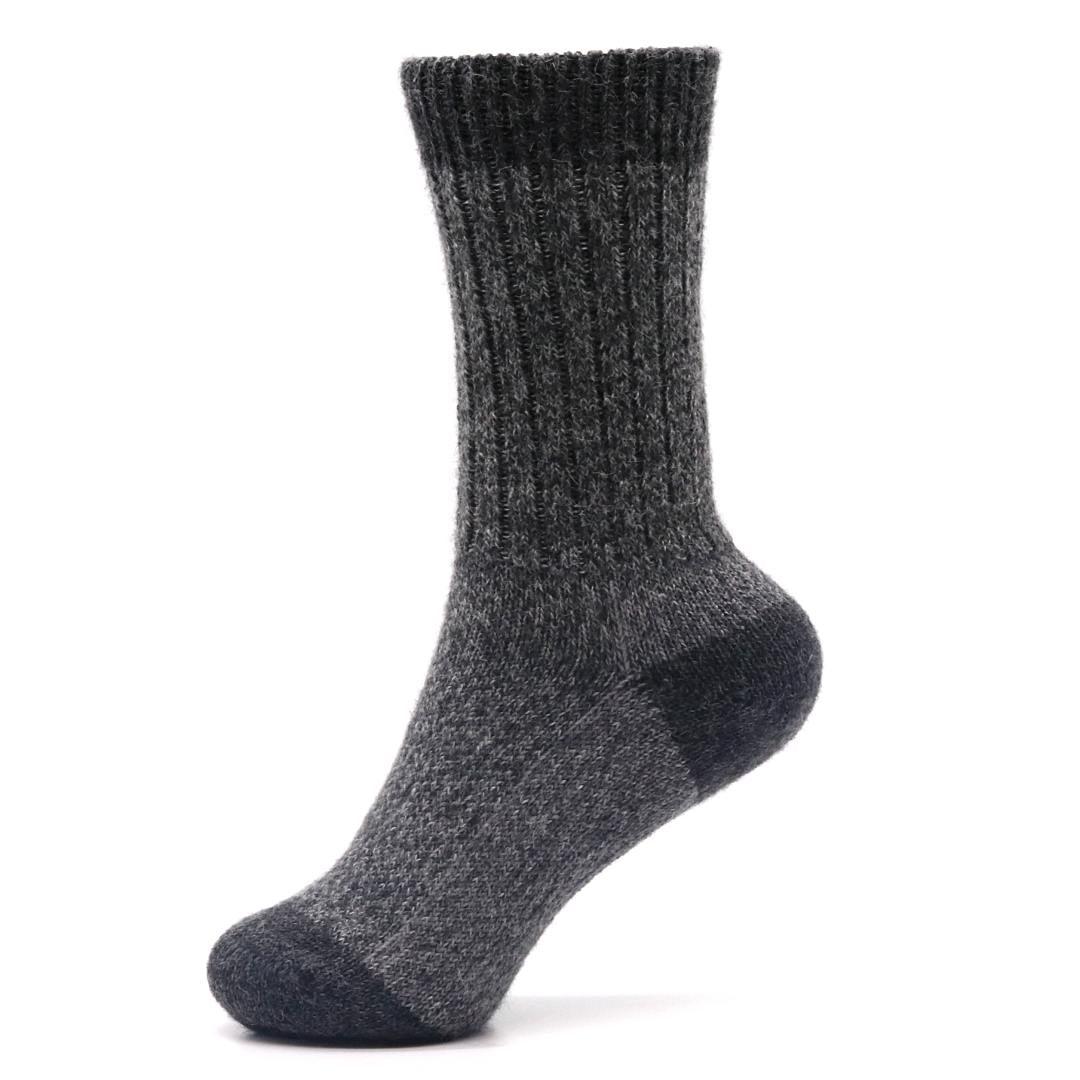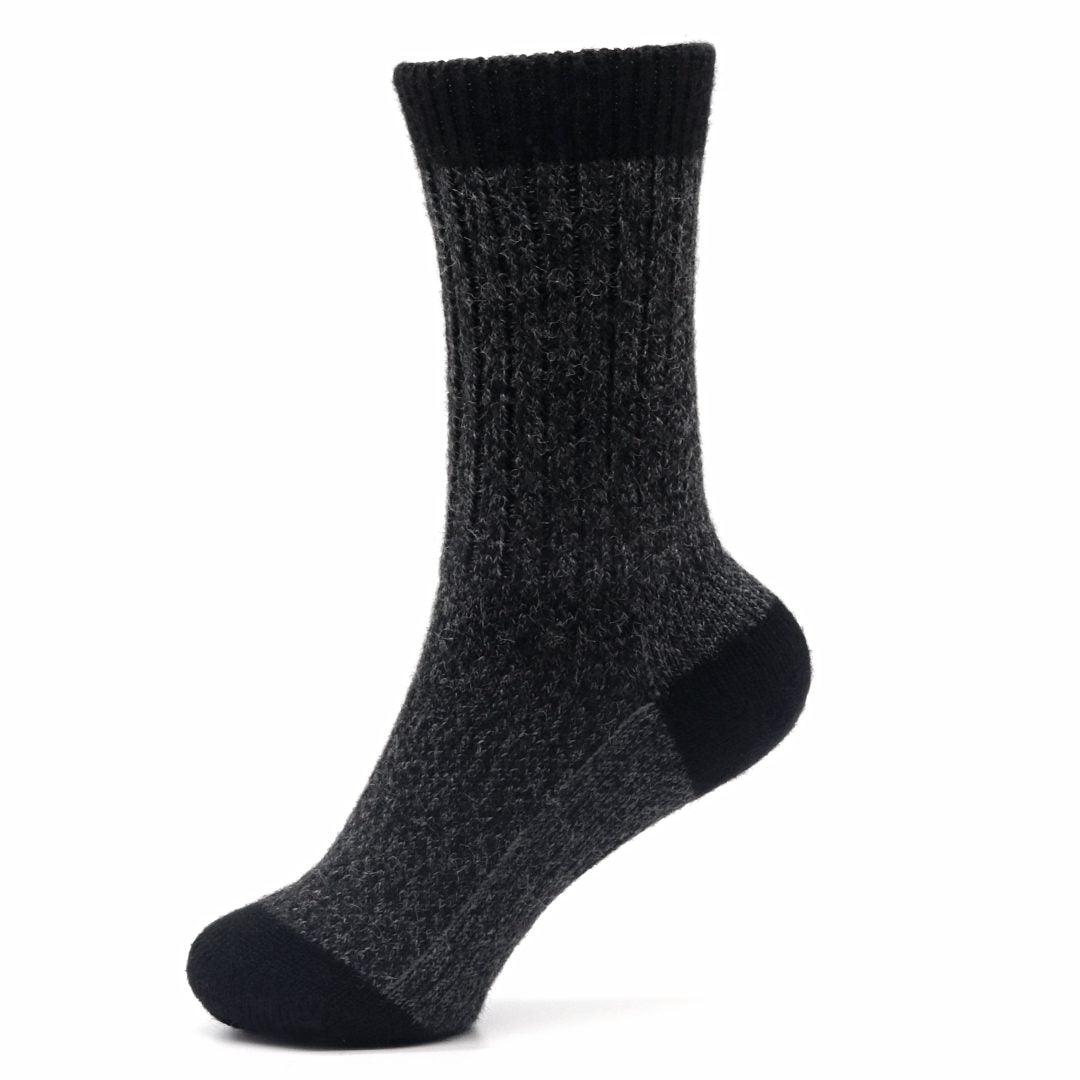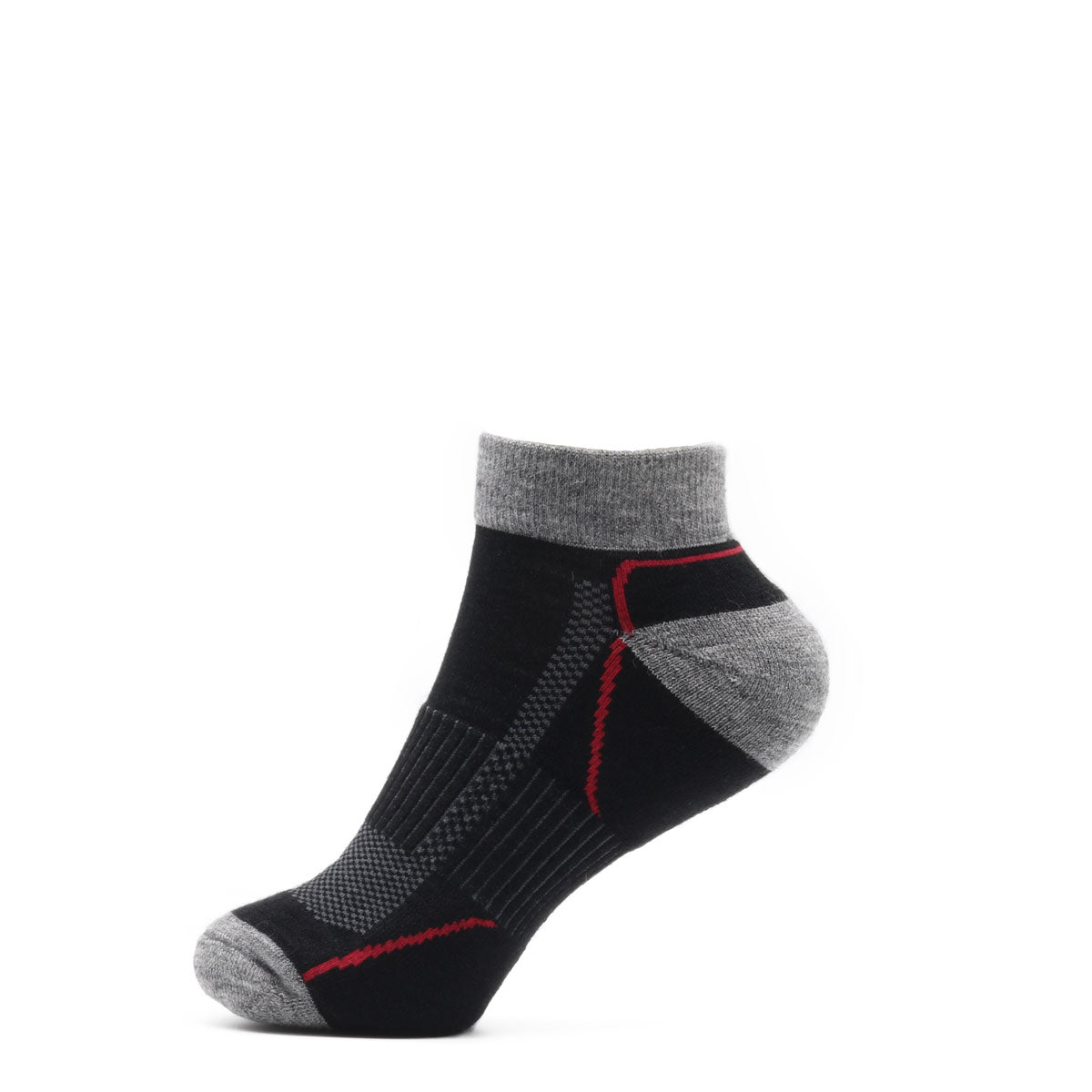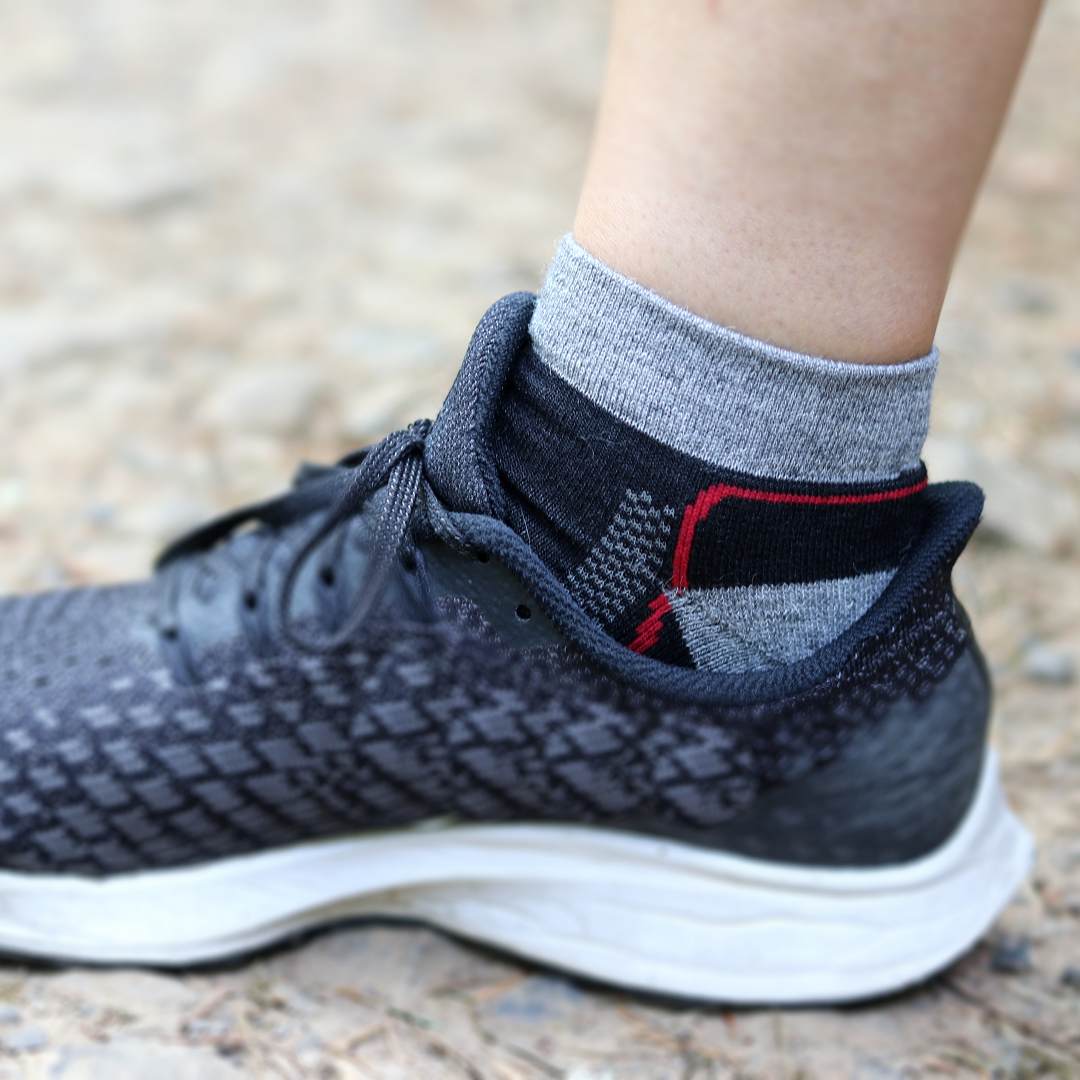Help me find the right slipper for my...
-
Our feet sweat, wool slippers can handle it.
Your feet, the impressive, functional structures that they are, contain a ton of sweat glands. About 250,000 to be precise, more than any where else on your body, and they can produce up to a pint of perspiration a day. That's a lot of sweat! To deal with that much sweat, the wicking performance of the fabric is the key to dryness and comfort. Wool's performance in extreme and damp conditions is virtually unmatched, even by today's advanced synthetic fabrics. Even natural fabrics like cotton can be a poor choice for slippers - cotton is ironically one of the poorest wicking fabrics on the market. To understand why wool is the best choice for slippers, you need to understand the chemistry of wool.
At a molecular level, wool is animal hair that is made of keratin, a complex organic substance formed by amino acids. As a fiber, keratin has some very impressive capabilities. It is lightweight, durable and can absorb up to 15% of its weight in water. Its fiber structure allows it to pull moisture away from your feet, absorb it, then transfer it away to the outer layers to evaporate into the air. This is how wool keeps your feet from getting hot and sweaty inside a slipper...
Why is this important? Damp feet will never get warm, and damp slippers are miserable. This also brings us to the issue of smell. Sweat doesn't smell bad when it's produced. However, if sweat remains on skin or trapped inside a synthetic fabric where it can't evaporate, bacteria will start to break down in the sweat. This produces the characteristic smell of sweaty feet, and worse, it lingers in your slippers. If you have a history of smelly slippers, hop over to our Smelly Feet tab to learn more.
-
Smelly happens when sweat gets trapped.
Having smelly feet and stinky shoes is not your fault and it's nothing to be embarrassed about. Bacteria lives in sweat, our feet sweat and bacteria grows in sweat than cannot evaporate. This normal process is what makes feet, and by extension shoes and slippers smell funky after a while. Slippers made of synthetic materials like shearling, fleece, man made sheepskin, leather and many others will hold moisture/sweat and get stinky over time. Wicking sweat out of the shoe or slipper is the only way to prevent bacterial growth.
Some sources claim that wool is anti-microbial (prevents microorganism growth) or anti-bacterial (prevents bacterial growth) and that’s what makes it resistant to odors. While this is somewhat true, there's a catch. The lanolin in sheep’s wool protects their skin from infection and has natural anti-bacterial properties. When wool is processed to be dyed, most of the lanolin is removed. Even without lanolin, wool still has the advantage of being ultra-wicking which prevents most sweat and bacteria from being trapped.
What's that you say? It would be even better if we left the lanolin? Well we did! We call these our 'Naturals', and this wool has been washed and minimally processed, leaving most of the lanolin and anti-bacterial properties of natural wool intact. In fact, it's so minimally processed that you may still find pieces of hay in it! Don't worry, it's clean, just embrace the nature!
Felted wool keeps feet warmer naturally.
Nootkas wool slippers are felted by hand using an ancient and time proven production method that you can read more about here. Our wool is gently cleaned, then over several hours the raw wool fibers are slowly coaxed into a slipper shape through our traditional wet felting process.
The physical properties of natural merino wool, combined with our hand felting method produces a dense textile with tiny air pockets throughout. Due to the presence of these micro-pockets, the wool is able to capture warm air inside the walls of the fabric and keep it close to your feet. The ability to take advantage of any warmth your feet creates is one big reason why felted wool slippers are the warmest slippers for cold feet.
You may not know this but air is an excellent insulator and helps maintain a constant temperature inside the slipper. The air pockets also allow the slipper to breath and wick any moisture away quickly - much more efficiently than other fabrics. Keeping feet dry is of course crucial to maintaining warmth and comfort.
-
Cozy wool slippers with a conscience.
The wool for our Astoria slippers is sourced exclusively from New Zealand. As a country NZ has banned mulesing and has passed a number of strict anti-cruelty laws making it among the safest places in the world to source raw wool. We work closely with our suppliers to ensure our wool is coming from humane, cruelty free farms. We use a soft genuine suede on the sole for added coziness and quality.
Our Astoria slippers are handmade from start to finish in Nepal, each pair taking roughly 4 (wo)man hours to complete over a 3 day period. They are wet felted and then spend several days drying and shaping in the sun. Our partners are Fair Trade Certified and pay a fair living wage. These are ethical and sustainable slippers you can feel good about. Rather than us going on and on about how great these are, we're going to let one of our recent reviewers tell you in her own words:
"I love my Nootkas slippers. I am a true wool fiend and for me there is nothing like bare feet in a warm and cozy slipper. My feet are narrowish and these are a perfect find for me. Couldn't like them more. I look forward to wearing them at the end of the day. Thanks for your craftsmanship and attention to perfection."
More than just a pretty slipper.
Shop the No Sweat Astoria Slipper
If you've never owned a pair of felted wool house slippers before, you're in for a treat! Our wool slippers and house shoes are made from premium New Zealand and Mongolian Merino wool. They are soft, cozy, and provide all the benefits of natural wool.
Some of these benefits include moisture wicking, breathability, resistance to foot odor and incredible insulating properties.



